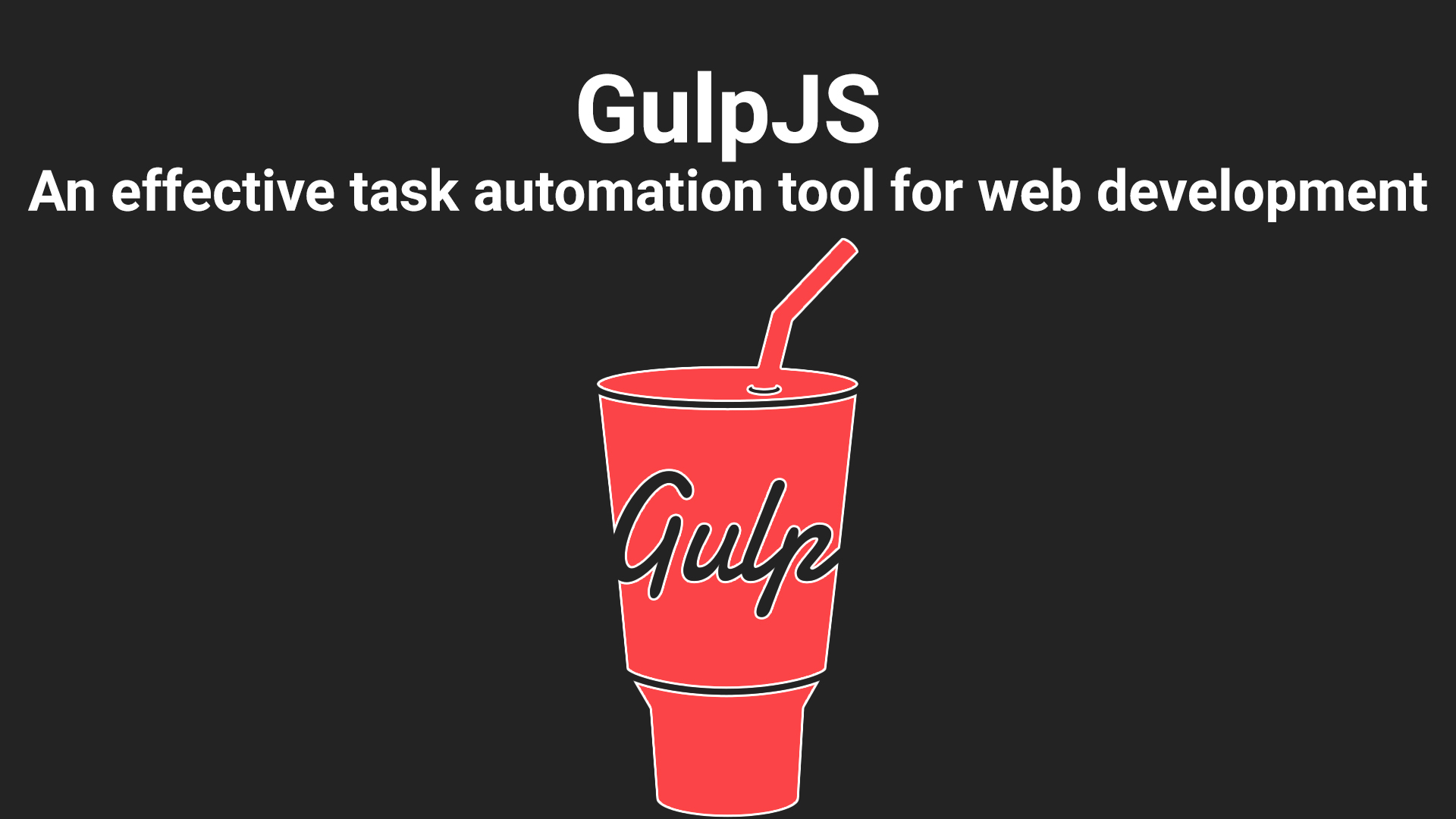GulpJS: An effective task automation tool for web development
- November 12, 2024, 08:43:13

Modern web development requires process optimization to increase productivity and speed of project creation. Automating repetitive tasks helps developers focus on the more complex aspects of their work. One of the popular tools for automating web tasks is GulpJS. In this article, we will explain what GulpJS is, how it works, and how using it can help your business speed up development processes.
What is GulpJS and how does it work?
GulpJS is a task automation tool based on JavaScript and Node.js . It is used to perform various tasks in the web application development process, such as file minification, SCSS compilation to CSS, file concatenation, image optimization, and more.
The basic concept of GulpJS is to use "streams" to process files. Files go through the task chain without creating temporary files on disk, which makes Gulp very fast and efficient.
The working principle of GulpJS includes the following steps:
- Task Definition — Each task is described in the gulpfile file.js, where the necessary operations are prescribed.
- File Processing — Gulp uses streams to work with files that are passed through a chain of tasks such as minification or compilation.
- Process Automation — Gulp can automatically run tasks every time files are changed, which speeds up the development and testing process.
Why do people use GulpJS?
GulpJS popularity is due to its simplicity and speed. The developers appreciate it for the following features:
- Ease of use — GulpJS uses a minimalistic syntax to describe tasks, which makes it accessible even for beginners.
- High performance — due to GulpJS threads, it minimizes the load on the file system, which ensures fast task processing.
- Flexibility and extensibility — Gulp supports a huge number of plugins, which allows you to automate almost any task in the development process.
- Integration with other tools — GulpJS integrates seamlessly with various frameworks and development tools such as Sass, BrowserSync, etc.
- Continuous Integration support — GulpJS can be configured to automate processes in CI/CD systems, making it an ideal choice for projects with constant updates.
Benefits for your business
Using GulpJS in your business will bring many benefits:
- Accelerating development — automating routine tasks allows the development team to focus on creating functionality rather than manually processing files.
- Error Reduction — Automating processes such as minification and optimization reduces the likelihood of human error.
- Website performance optimization — file compression and minification, as well as image optimization, lead to a reduction in the size of uploaded data, which speeds up the loading of web pages and improves the user experience.
- Save time and resources — automated tasks allow you to save development time and bring the product to market faster.
- Workflow Improvement — By using GulpJS, you can integrate it into CI/CD processes, which will help speed up product development and releases.
Conclusion
GulpJS is a powerful tool that helps automate web development processes, making them faster and easier. Due to its simplicity and flexibility, it is great for both small projects and large enterprise solutions. Using GulpJS in business speeds up development, reduces errors, and improves web application performance.
Services from MivoCloud
To ensure the stable and secure operation of your project, MivoCloud offers reliable and productive servers that will ensure the smooth operation of your web applications. Regardless of whether you are developing on GulpJS or using other tools, our solutions will help you ensure high availability and performance of your site.


